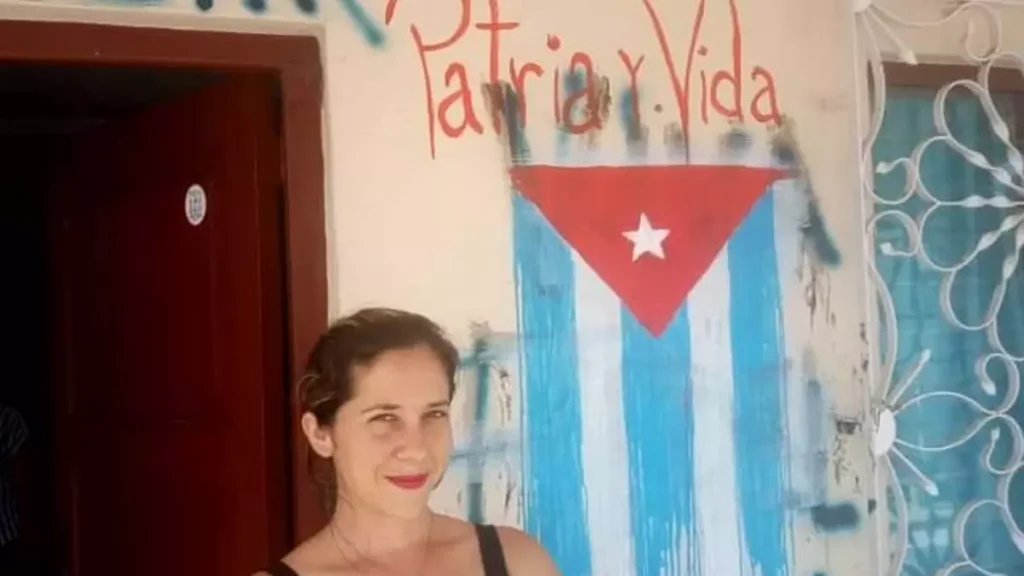during the widespread July 11, 2021 protests in Cuba

Sandra Hernandez tells, from outside of Cuba, the ordeal to which the regime subjected her and her family for peacefully protesting
HAVANA TIMES – Three words in blue ink – ‘Patria y Vida’ (Homeland and Life) – written on the facade of her house were enough for Sandra Hernandez to understand State Security’s speedy response even in small towns like hers. After the island-wide protests of 11 July 2021 (11J), there was not a single gesture against the Government in the municipality of Cabaiguán, except hers. A few hours later, a hate rally and numerous slogans on her wall awaited her.
“That day, July 13, my husband and I decided to put ’Homeland and Life’ on the front of the house, because my daughter was barely one year old and I couldn’t go with her to the street to protest,” Hernandez tells 14ymedio from the Dominican Republic, where she has been living for several months. “We painted the words around four in the afternoon on the facade of my building, supposedly inviolable before the law, although they didn’t care about that,” she says.
The graffiti, which alluded to the song of the same name and which became the anthem of the protests of 11J, marked a before and after in the life of Hernandez and her family. “At night the president of the CDR (Committee for the Defense of the Revolution) arrived asking why I had written that and said we shouldn’t have done it in his CDR. He alluded to my deceased mother and grandmother, reminding me that they had been good revolutionaries, and told me that it was enemy propaganda,” she says.
When she finally thought that things would calm down, the family received another visit: “At 10 at night about 12 people arrived at my door. They were from the Federation of Cuban Women, the Young Communists League and other official organizations, saying that they wanted to ’converse’. I told them that that was not a good time to visit and that they could come back the next day.” The entourage left, says Hernandez, but State Security did not stand idly by.
“In the early morning I was awakened by a strong chemical smell, similar to that given off by the Cabaiguán refinery. I realized that it was coming from the house itself, and I ran to open the kitchen door to ventilate,” she says. Before the family knew it, they had filled the front of the house with revolutionary slogans, and only the word “Homeland” remained. The strong smell came from the liquid asphalt that the regime’s agents had used – along


